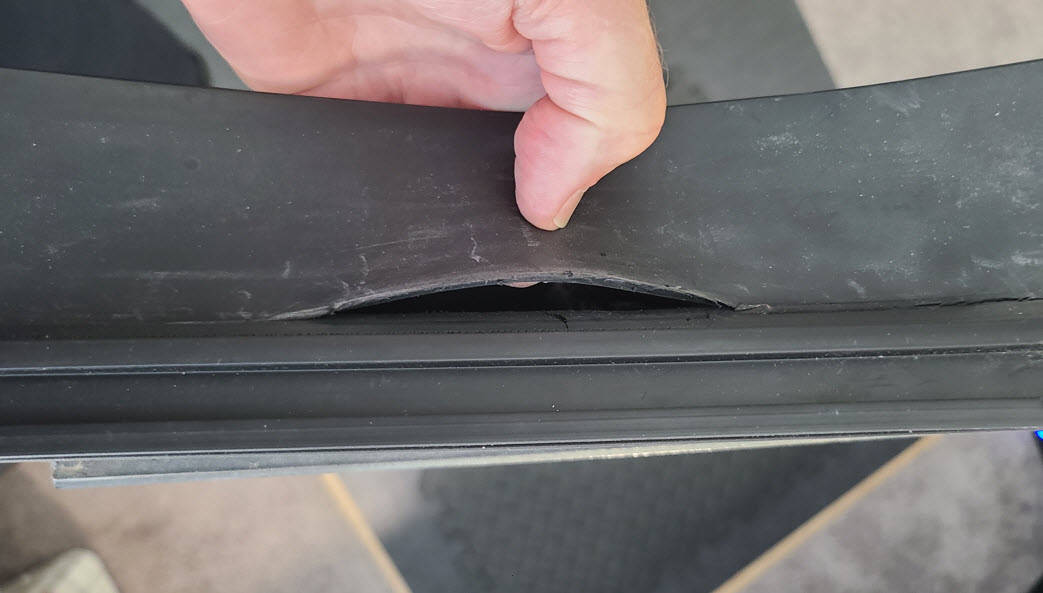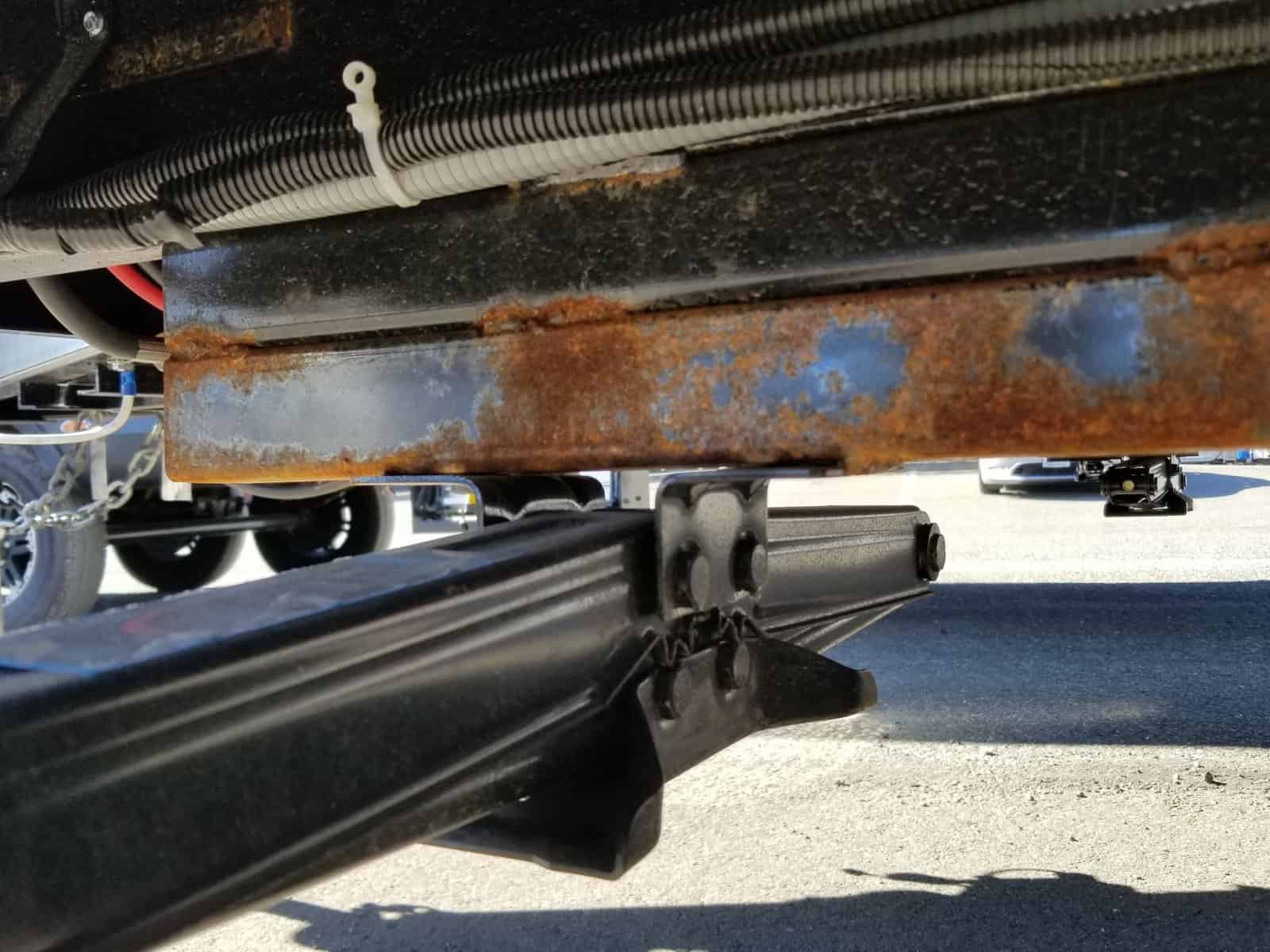Arm yourself, RVers. This year the annual cicada invasion will be a double brood, making it harder than ever to clean bugs off the RV. Here’s what to expect and four ways to clean bugs once this year’s rare form of cicada invasion takes place sometime between late April and early summer.
Cicadas appear most years on the East Coast of the United States. Their “broods” emerge in 13 or 17-year cycles. A few cicada species emerge annually. But rarely do both the 13 and 17-year species emerge from the ground together. Unfortunately this is a “double brood” year, which means both the 13 and 17-year species cicadas will arise from the ground together in spring.
This massive cicada invasion will trigger a rare emergence that has not happened since 1803, when Thomas Jefferson was president. And according to ScienceAlert.com, this double brood emerging at the same time won’t happen again until 2245.
When and Where the Cicada Invasion Will Impact your RV
According to Cicada Mania, cicadas will begin to stir underground when the soil reaches 64 degrees Fahrenheit. All it takes is one warm rain to soak the land, when they will rise from the soil together and start splattering your windshield or fiberglass cap with cicada bug guts.
Cicada bugs start hitting RV windshields in late April through early summer. They are found from the Rockies to the East Coast, in the states of:
- Alabama
- Arkansas
- Colorado
- Delaware
- Georgia
- Iowa
- Illinois
- Indiana
- Kentucky
- Louisiana
- Michigan
- Missouri
- Mississippi
- Nebraska
- New Jersey
- New York
- Ohio
- Oklahoma
- Pennsylvania
- North Carolina
- South Carolina
- Tennessee
- Virginia
- Wisconsin
- West Virginia
So, what can you expect if you are driving through any of the states mentioned? For starters, cicadas can cause problems when you’re actually driving. Like this man who crashed his car when he tried to swat a cicada:
And for every cicada that hits a vehicle, they can damage the paint beyond repair. Taking action to clean cicada bugs off the RV is critical, especially in a double-brood year.
“Cicadas are a pretty big bug,” says Mat Bazid, general manager of Flagship Carwash Center, in South Riding, Virginia. “They have been underground for 17 years. If you hit it with your windshield, it’s a big splat of bug guts.”
Even a few squirts of washer fluid, and a half-minute of windshield wiping, usually leaves a hazy residue, Bazid said. Before going through the RV wash, he suggests using a Love Bug Eraser to clean your fiberglass cap, glass, and bodywork. But do it fast.
There are so many cicadas swarming around all at once that their predators, such as birds and small mammals like squirrels can’t make a meaningful dent in their numbers. These predators become so full that they literally can’t eat any more cicadas.
Source: Where billions of cicadas will emerge this spring (and over the next decade), Vox.com
Why You Should Clean Cicada Bugs Off The RV, ASAP
Cicada bug guts can be extremely damaging to your RV gel coat or paint job. “It eats it away, starts to get under the clear coat. After that, it starts rusting away the paint,” Bazid warned. “Bug guts, if you leave [them] on there for too long, especially during the summertime, the sun is pretty much baking whatever’s on your paint.” It’s the acid from the bug guts that stains clearcoat and paint.
- Consider upgrading your RV wash to include wax, which makes it easier to keep your vehicle’s paint safe during any cicada invasion but especially this historic one. “Wax helps protect it,” Bazid said. “Wax is a sealant.”
An influx of cicadas may be unsightly to the exterior of the car. But a bug buildup in the car’s front grill can cause damage according to Bazid. “It can get in your radiator; it can make your engine overheat.”
Tackling the RV wash job yourself?
The Love Bug Eraser “Bugs Off Pads” can remove all of those damaging cicada guts. Although soap and water from a car wash will clear away residue, a Love Bug Eraser will do a better job cleaning bugs off your RV windshield and painted surfaces. And don’t worry about your RV’s special paint coatings. Bugs Off Pads are even safe to use on 3M Diamond Shield. Just use them with a brand name RV or car wash soap, even baby shampoo works well,” says creator Don Meyns.
Four Ways to Protect Your RV from Cicada Damage
In a press release, AAA offers the following four tips to keep your vehicle cicada free:
1. Maintain Your windshield wipers
Make sure your RV windshield wipers are working and your washer fluid is full. Special bug washer fluid with advanced technology can be purchased from local stores to keep the glass bug free and enhance driving visibility.
2. Clear the RV or tow vehicle grill
Cicadas cause damage to vehicles by clogging radiator grills, causing the engine to overheat. Get a grille cover, bug screen or just stretch some netting over the front of your car. Use a plastic spatula to gently scrape them off or a soft spray from a hose. Your radiator fins can bend easily.
Protect the exterior of the vehicle: Bug remains sitting on your car for too long will eat away at your car’s exterior. Wash your vehicle frequently with a car wash solution (not household dish washing detergent) paying special attention to the windshield and headlights. Waxing your vehicle can also add an extra layer of protection.
3. If you drive through a cicada swarm, pull over
Always carry a Bugs Off Pad with you and use it on a pole or by hand to remove the bug residue from your windshield and painted bodywork. It is the only product proven to remove the acidic residue completely. You can use the fluid from your windshield washers or a spray bottle of water with the pad, then wipe away the remaining mess with paper towels or throw away rags.
4. Check your air filter
Air filters in cars and motorhomes can become a playground for cicadas. They like to hide in the air filter or in the RV filter housing. Drivers should pay attention to these areas, listen for any unusual sounds and bring your car into an AAA Approved Auto Repair facility for a free maintenance inspection.
And finally, keep your cool if a cicada gets inside your RV. Cicadas do not bite or sting. They just buzz and make obnoxious noise. Remain calm and keep your attention on the road until you can locate a safe place to pull over. If there are passengers in the car, advise them to remain calm as well. Travel with windows and sunroofs closed to reduce the chance of a cicada getting into the RV. Your response to the bug invasion in your RV can itself be a distraction, increasing the risk of a crash and potential danger to you, your passengers and other drivers.
Cicada bugs are annoying, but don’t confuse them with locusts.
They may sound awful, but cicadas are not the terrible bugs we imagine them to be. They are nothing like locusts, which eat virtually any and all plant life. Cicadas are harmless to humans and animals. They will not destroy your garden, ruin your lawns, or kill trees and shrubs, etc.
The only thing a cicada wants? To live their life cycle. For 13 or 17 years, these critters do very little to bother humans. They develop into adults underground while sucking sugar out of tree roots. Then they emerge from the darkness, sprout wings, make a ton of noise, lay eggs on the branches and twigs of trees and bushes, then become food for birds and small mammals. Most cicadas die within 4 to 6 weeks after emerging. And when rains and windy conditions return, their progeny go back into hiding, living the next 13 or 17 years in silence.
All you need to do is clean those bug guts off your RV, and they’ll leave you alone every other way.



